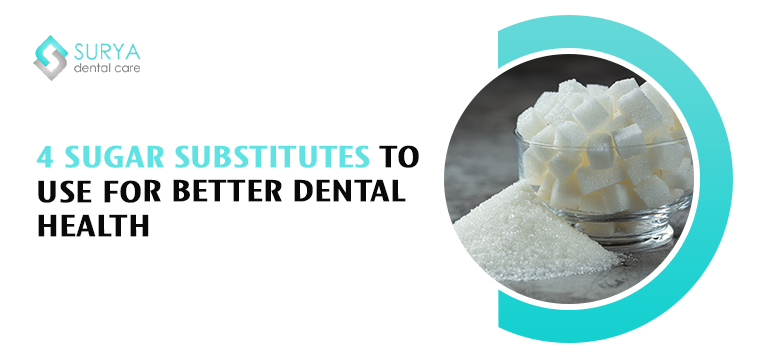
One of the sweeteners that are most commonly used is sugar. Unfortunately, it has been shown that using it increases the risk of developing diseases including dental cavities, obesity, and diabetes mellitus (DM).
Dental caries is a chronic condition that can strike anyone at any age. The risk of dental caries starting and progressing is being linked more and more frequently to sugar (and other fermentable carbs such as highly refined wheat). Sugar substitutes are food additives that offer a sweet taste somewhat resembling that of sugar and serve a significant role in the prevention of dental caries.
1) Monk Fruits
Monk fruit has no calories despite being around 300 times sweeter than table sugar. These mogrosides, especially mogroside V, are what give this sweetness.
Since monk fruit has no calories and has no impact on blood sugar levels, using it in place of regular sugar may aid in weight reduction and improve blood sugar levels. However, there isn’t much research on this sweetener that includes people right now.
Before drinking monk fruit extract, remember that it frequently contains additional sweets; thus, always check the label.
2) Allulose
D-allulose is a monosaccharide (or sugar) that naturally occurs in several fruits under the name allulose.
It has just 0.2 calories per gram and is 70% as sweet as table sugar.
Allulose resembles the flavor of ordinary sugar, in contrast to many other calorie-free and low-calorie sweeteners.
Additionally, human studies indicate that allulose may assist persons with and without diabetes lower their blood sugar and insulin levels, while more study is required in this area.
You should adhere to a maximum single dose of 0.19 grams per pound (0.4 grams per kilogram) of body weight and a maximum daily dose of 0.4 grams per kilogram since higher amounts may cause symptoms including bloating, diarrhea, and stomach discomfort.
3) Dates
The dried fruit of the date palm tree is known as a date. These sweet, chewy fruits are a great substitute for refined sugar and have a number of health advantages.
Dates are a good source of minerals, including fiber, potassium, magnesium, manganese, vitamin B6, carotenoid antioxidants, and polyphenols, in contrast to refined sugar and many other sweeteners.
Dates can be used for sugar in recipes for energy bars, cakes, and cookies due to their sweetness. Additionally, you may combine them to flavor smoothies and homemade nut milk.
Some individuals grind dates into a thick paste that can substitute refined sugar 100 percent.
Dates have a lot of calories and natural sugars, yet studies show they have little impact on blood sugar levels.
4) Honey
Honey is a viscous, golden liquid that honeybees make. It has a wealth of plant chemicals that have anti-inflammatory and antioxidant properties, as well as trace levels of vitamins and minerals.
However, a variety of circumstances, such as the kind of bee that made the honey and the kind of flower the bee was eating, affect the kinds of plant chemicals that are present in honey.
Compounds in honey, such as honey polyphenols, may reduce inflammation in the body. In comparison to table sugar, honey has a slightly lower glycemic index (GI). It could be healthier than refined sugar because of these properties.
However, there is little study on these advantages.
If you decide to use honey, use it sparingly.
Being a wise consumer pays off when selecting sugar replacements. Sugar substitutes and artificial sweeteners can aid in weight control. However, they shouldn’t be used excessively because they aren’t panacea.
Food advertised as sugar-free nevertheless contains calories and might lead to weight gain. Remember that processed meals, including sugar alternatives, don’t typically provide the same health advantages as whole foods like fruits and vegetables.



